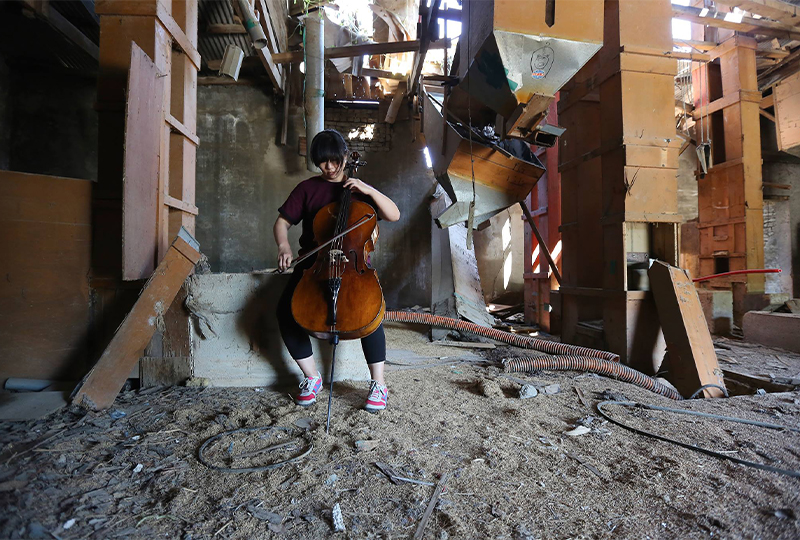|
Getting your Trinity Audio player ready…
|
Cellist Okkyung Lee is best known for her visceral attack and extended techniques, which can be heard on past albums such as Ghil (Ideologic Organ, 2013). On Yeo-Neun (Shelter Press, 2020), she embraces the delicacy of chamber music, leading a quartet including Maeve Gilchrist (harp), Eivind Opsvik (bass), and Jacob Sacks (piano). Lee has not lost her experimental edge – she can bend the cello to her will in such a manner that sometimes it’s impossible not to focus on her. However, even though she composed the entire album, Yeo-Neun is never solely about Lee. Each tune puts the onus on the quartet as a whole.
Yeo-Neun is a serene mix of avant-garde classical music, free-improvisation, and Korean compositional nuance. Looking to her homelands’ musical tradition for inspiration has given Lee a beautiful melodic sense, with both “Uiro (Up and Up and Up)” and “One Bright Lazy Sunday Afternoon (You Whispered That Name)” having memorable motifs. There are moments of kaleidoscopic intricacy, which can be heard in the piano-harp dialogue of “The Yellow Porcelain Bird”, and the quartet also excels in more spacious environments. “Here We Are (Once Again)” and “In Stardust (For Kang Kyung-Ok)” contain striking moments of pensive playing. The former has an uncanny ethereal beauty and the foreboding environment of the latter has a remarkable unsettling tension. The juxtaposition between Lee’s abrasive cello and Gilchrist and Sacks’ subdued approach makes “In Stardust (For Kang Kyung-Ok)” a thrilling listen.
When Lee focuses on the more aggressive aspects of her style and takes the band with her, the results are stunning. Piano and cello combine in “The Longest Morning” for a fascinating improvisational bout. The musicians expertly switch from chaos to calming folk melodies in “Another Old Story (옛날이야기)”. Towards the end of the album, the haunting “Facing Your Shadows” culminates in gripping, combative fashion.
Yeo-Neun will open more doors for a musician whose immense skill has never been in doubt. Lee’s quartet, formed in 2016, has chemistry beyond its years. This is an excellent recording full of a spellbinding balance of patience, melody, and freedom.
Yeo-Neun is now available from Shelter Press’ online store or on Bandcamp.
Or, if you would like to both purchase the album and help our site offset its operating costs, you can buy it from our Amazon affiliate store.
Personnel: Okkyung Lee (cello, composer, producer), Maeve Gilchrist (harp), Eivind Opsvik (bass), Jacob Sacks (piano).







Leave a Reply